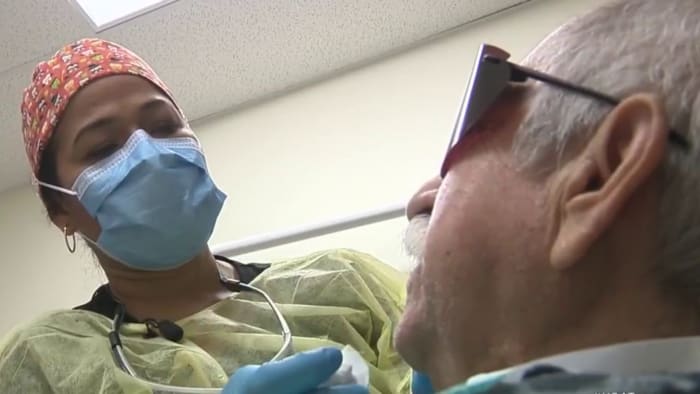Blood
New grant provides free dental services for veterans with blood cancer after military service
SAN ANTONIO – – They served our country bravely, but many came away with blood cancers.
Veterans were exposed to hazardous substances during their military service that are believed to contribute to more than 4,000 blood cancer diagnoses every year.
With cancer treatment, often comes dental problems.
“In addition to that, the time that they spent for self-care overseas might have been limited for some of these individuals,” said Dr. Annetty Soto, an associate professor and director of the Geriatrics Dental Clinic at the UT Health San Antonio School of Dentistry
Soto is leading a UT Health San Antonio dental program that provides free care to veterans who have blood cancers, thanks to new $100,000 grant from the Leukemia and Lymphoma Society.
These cases are complex in nature and typically very expensive.
“We need to be sensitive with either surgical interventions or chemotherapy that they may be undergoing,” Soto said.
Many veterans have pre-existing dental issues, and once they start chemotherapy or radiation, current dental issues can get exacerbated.
“It can be the dental structure that has been compromised for years of where it could be further fractured. But it could be also gum-related problems,” Soto said.
She also mentioned the psychological conditions that affect oral health
A lot of people don’t realize that PTSD, anxiety and depression can cause clenching or grinding and inevitably lead to severe issues.
Since the grant came in Soto has received four patients
She has already begun dental work on two patients and will start on the others when they finish up chemotherapy.
Soto knows she and her team are not just fixing teeth. They’re restoring an entire quality of life for each patient.
“I have patients who have claimed that this is their second life. They want to have a productive, happy life, where they can socialize and be proud of their smile, where they can easily talk to other people, enjoy their food,” Soto said.
They deserve a life worthy of their service to our nation.
Veterans in the program can receive dental care before and after cancer treatments.
For more information, call 210-450-3700 to be connected with the Office of Patient Care.
From the Leukemia & Lymphoma Society, for program information, eligibility requirements, how to apply and program support, go to the program website.

